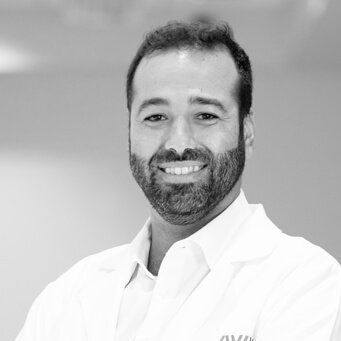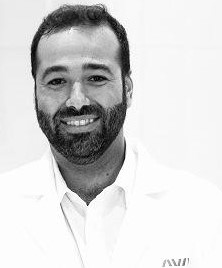
Effective Treatments and Support for Pediatric Traumatic Brain Injuries


Traumatic brain injury (TBI) in children and teens is a sudden disruption to brain function caused by a blow or jolt to the head. When a young person experiences a TBI or concussion, it can affect physical abilities, cognitive function, and emotional well-being. This impact can disrupt or restrict blood flow to certain regions of the brain, affecting its ability to function properly. Pediatric brain injury treatment focuses on helping teens recover fully and regain their quality of life. At Aviv Clinics, our specialized program offers a comprehensive, personalized approach to treating pediatric TBIs.
Pediatric Traumatic Brain Injury in Teens: Risks and Statistics
When it comes to TBIs and concussions, adolescents are a high-risk group. 2020 CDC data reveals that 12.2% of U.S. children aged 12 to 17 reported experiencing concussion or brain injury symptoms at some point in their lives.
Common Causes of Pediatric TBI and Concussions
The most common causes of TBI and concussions in teens include:
- Falls
- Sports like football, basketball, soccer, lacrosse, ice hockey, wrestling, and cheerleading
- Motor vehicle accidents
- Bicycle accidents
- Physical abuse
How Pediatric Traumatic Brain Injury Affects Teens
Teens suffering from TBIs or concussions can experience moderate to severe symptoms that may involve physical, cognitive, and behavioral or emotional issues. New treatment approaches offer a pathway to improvement in teens suffering brain injuries to get them back to feeling like themselves.
The Aviv Medical Program offers pediatric traumatic brain injury rehabilitation using a personalized a multidisciplinary approach. Backed by nearly two decades of research, Aviv Clinics’ unique medical program combines interventions like cognitive and physical training, dietary coaching, and hyperbaric oxygen therapy (HBOT).
Real Life Success Story: Pediatric Traumatic Brain Injury Treatment at Aviv Clinics
The Aviv Medical Program took one teen from concussion to competition.
Linden Perry was a 15-year-old honors student and star athlete when she experienced what seemed like a minor head bump against the goalpost during soccer practice. Not long afterward, she fell and hit her head during a basketball scrimmage — but this time, the result was anything but minor..
Troubling symptoms — including sensitivity to light and sound, loss of balance, double vision, and eye seizures — appeared immediately. The symptoms continued for weeks after the injury, and Linden was eventually diagnosed with post-concussion syndrome (PCS). She had trouble concentrating in school. She was missing classes and assignments. Her grades began slipping, and she could no longer play sports.
Doctor after doctor told Linden there was nothing they could do, and that she needed to accept her new reality.
The Aviv Medical Program: Innovative Brain Injury Treatment
Linden’s mother Carissa learned about Aviv Clinics, and turned to the Aviv Medical Program as their final attempt to get Linden back.
The PCS treatment plan for Linden included sessions of a unique hyperbaric oxygen therapy (HBOT) protocol. While inside the roomy hyperbaric suite, she completed brain exercises that focused on working memory, reaction time, attention, and information processing speed.
Linden’s recovery program lasted three months. During that time, she also worked with Aviv’s nutritional coach, physical therapists, physiologists, and neuropsychologists. This comprehensive, team-oriented approach ensured Linden achieved optimal cognitive and physical performance.
A final assessment of Linden at the end of the program revealed improvement in cognitive ability, strength, agility, balance, confidence, and energy. Undergoing the innovative treatment at Aviv Clinics helped Linden overcome post-concussion syndrome and feel like her old self again. Not only was she able to return to the field, but she also won a state championship with her high school team and is now playing collegiate soccer.
What Parents Should Know about Pediatric Traumatic Brain Injuries
After a TBI incident or concussion, your teen may feel confused or scared. Provide support by offering reassurance and taking them to a physician right away, even if your child didn’t lose consciousness. Receiving a diagnosis quickly can help your loved one avoid further risks to their health and the healing process.
Your child should also pause any sports activities they are involved in.
During the treatment journey, keep these four tips in mind to ensure your teen receives the comprehensive care they need and deserve.
1. Pediatric TBI and Concussion Symptoms Vary in Severity
While symptoms of TBI in children vary in scope and severity, they can all adversely impact a teen’s life.
Parents should be on the lookout for physical, cognitive, behavioral/emotional symptoms, and sleep issues if they suspect their teen might have a TBI.
Physical symptoms of a TBI include:
- Headaches
- Visual problems
- Dizziness
- Loss of balance
- Hearing difficulty
- Ringing in the ears
- Sensitivity to light and/or noise
- Nausea and/or vomiting
- Seizures
- Chronic pain
Cognitive TBI symptoms include:
- Attention and memory problems
- Poor concentration
- Delayed processing speed
- Difficulty finding words
- Impaired judgment
- Confusion
- Perseveration (the continual involuntary repetition of a thought or behavior)
Behavioral/emotional symptoms of a TBI include:
- Anxiety
- Depression
- Irritability
- Impulsivity
- Aggression
- Decline in social skills
TBI-related sleep issues include:
- Difficulty falling or staying asleep
- Sleeping too much (hypersomnia)
- Fatigue and/or loss of energy
2. Pediatric TBIs and Concussions Often Go Undiagnosed
A study found that one in four children with mild traumatic brain injury (mTBI) still suffered from post-concussive symptoms years after an injury. The study concluded that in the vast majority of children suffering from persistent symptoms, the initial concussion diagnosis is missed.
Researchers also concluded that better screening guidelines and practices should be employed after suffering mTBI. They added, “Once diagnosed, patients can be referred to appropriate medical, academic, and emotional consultations and interventions.”
3. Clinical Research Shows HBOT Can Be Effective in Treating Pediatric Traumatic Brain Injury
A significant body of research over the last decade demonstrates the effectiveness of HBOT in improving TBI-related symptoms.
Studies indicate that traumatic brain injury responds well to hyperbaric oxygen therapy when delivered using a unique HBOT protocol. In clinical trials, this specific HBOT protocol improved neurological conditions in patients with mild TBIs, even many years after the initial injury.
- One study that examined the role of hyperbaric oxygen therapy in severe pediatric head injury found that study participants who received HBOT performed significantly better than control group participants who did not receive HBOT. Improvements were seen “on all the parameters with decreased hospital stay, better [Glasgow Coma Scale] GCS, and drastic reduction in disability.”
Researchers concluded that “in children with traumatic brain injury, the addition of HBOT significantly improved outcome and quality of life and reduced the risk of complications.”
- Another study tested the effectiveness of HBOT in improving brain function and quality of life in 56 patients suffering from post-concussion syndrome one to five years after injury. Patients were randomly assigned to either treatment or a control/crossover group. Patients in the treated group received 40 HBOT sessions; patients in the crossover group received no HBOT for a two-month control period.
Researchers found that the HBOT group significantly improved in all cognitive measures, including information processing speed, attention, memory, and executive functions.
The study’s authors concluded that “HBOT can induce neuroplasticity and significant brain function improvements in mild TBI patients with prolonged post-concussion syndrome at the late chronic stage, years after brain injury.”
4. How Aviv Clinics Provides Pediatric TBI Treatment
Backed by science, Aviv Clinics’ innovative TBI treatment protocol integrates the same specialized HBOT protocol into a personalized program. Based on each client’s medical condition, goals, and pre-treatment assessment, this regimen can include cognitive training, physiotherapy, and nutrition coaching. Our board-certified clinical team works together, under one roof, to put TBI and PCS patients on the road to recovery and healing.
The HBOT component of the treatment involves breathing 100% pure oxygen in a special room known as a hyperbaric suite. In the suite, patients experience Aviv’s unique HBOT protocol, which combines two processes:
- Increasing the oxygen level in the tissues of the body and brain
- Fluctuating the level of oxygen to stimulate the body’s natural processes of repair and recovery
Benefits of the Aviv Medical Program for Pediatric TBI Include:
- Improved cognitive performance:
- Attention
- Memory
- Focus
- Clarity
- Information processing
- Psychological symptoms
- Improved motor functioning:
- Coordination
- Balance
- Gait
These benefits can be gained even years after the TBI.
If your teen is struggling with the effects of a pediatric traumatic brain injury or suspected post-concussion syndrome, you don’t have to face the journey alone. Aviv Clinics offers an advanced, research-backed treatment program designed to support recovery and help children regain their cognitive, physical, and emotional strength. Every child’s brain is unique, and so is our personalized approach.
Contact us today to learn how our team can create a personalized treatment plan to help your teen thrive after a brain injury.
Last Update: August 10, 2025
Aviv Medical Program provides you with a unique opportunity to invest in your health while you age



